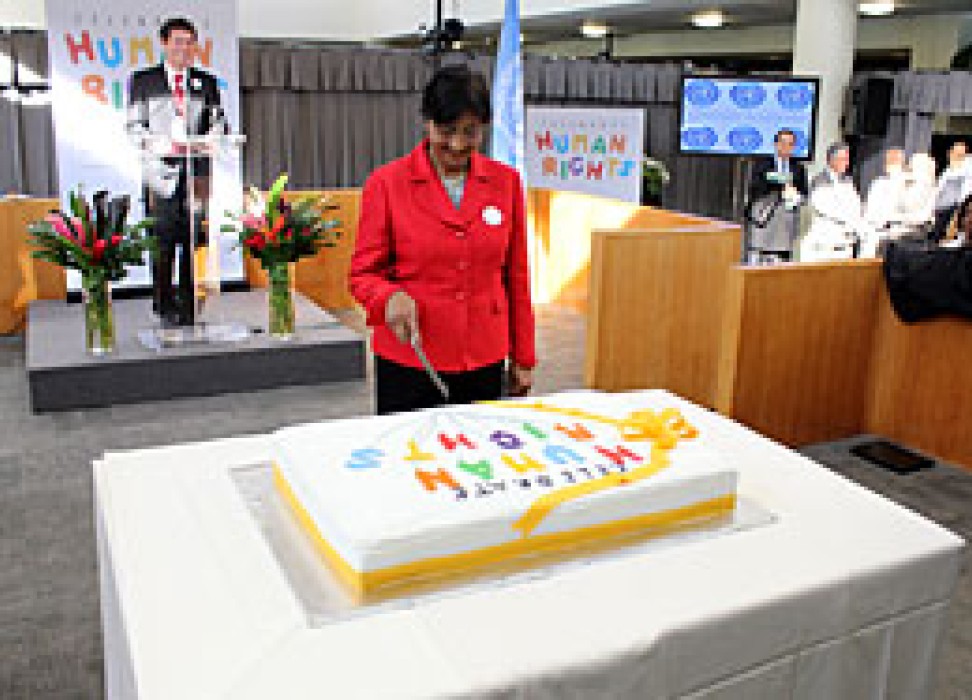“Do you have a question on human rights?”
09 December 2011

“In 2011, human rights went viral,” said UN Human Rights chief Navi Pillay. During the course of this extraordinary year, “the very idea of ‘power’ shifted,” she said. “It was wielded not just by mighty institutions in marble buildings, but increasingly by ordinary men, women, and even children, courageously standing up to demand their rights.”
Social media outlets bypassed the decisions about coverage of protests and repression of protests, which, in the past, have been made by reporters and editors. “Wherever it happens, you can now guarantee it will be tweeted on Twitter, posted on Facebook, broadcast on YouTube, and uploaded onto the internet. Governments no longer hold the ability to monopolize the dissemination of information and censor what it says,” Pillay said.
To highlight the role of social media, Pillay took part in a global social media conversation on the eve of Human Rights Day. From Dag Hammarskjöld Auditorium at the UN Headquarters in New York, she answered the questions submitted through Facebook, Weibo, and Twitter. The global conversation was moderated by Imran Garda of Al Jazeera.
Thousands of questions were received from all over the world in recent weeks in the six official UN languages – Arabic, Chinese English, French, Russian and Spanish – while others came in live from the audience during the event. At least 5 million users tweeted with the hashtag #AskRights
The first question, from Egypt, asked how the UN could ensure that the police or ruling regime is not oppressing protestors who are practicing their right to protest. Pillay said that “in the face of repression, to meet force with force, fire with fire, is not what international human rights cover”. She added that her job was to call for accountability when Governments do not respect international human rights standards and repress people’s expression for their rights.
Through Skype, UN Messenger of Peace and writer Paulo Coelho, asked about the role of culture and art in protecting and promoting human rights. “Art and music,” stressed Pillay “can reach out to a wider audience and carry very powerful human rights messages.”
Among others, questions focused on freedom of assembly, Middle East and North Africa, death penalty, minorities’ rights, migration, racism, women’s rights in conflict areas, human rights education, lesbian, gay, bisexual, transgender issues, and corporate responsibility.
“I hope this conversation started you on the road to becoming active in the global human rights movement,” she said.
The social media discussion was followed at the UN by a gathering where Pillay cut a cake to celebrate the “birthday” of the Universal Declaration of Human Rights. The event was followed by a press conference.
Webcasts of the event and press conference
9 December 2011
This year, Human Rights Day celebrates the work of human rights defenders and focuses on their efforts to galvanize and inspire support and inspire support for change via social media. The UN Human Rights Office has launched a global social media campaign that will encourage people to commit to taking action for change by becoming human rights defenders. Join us to celebrate human rights!
https://www.facebook.com/unitednationshumanrights

VIEW THIS PAGE IN:
